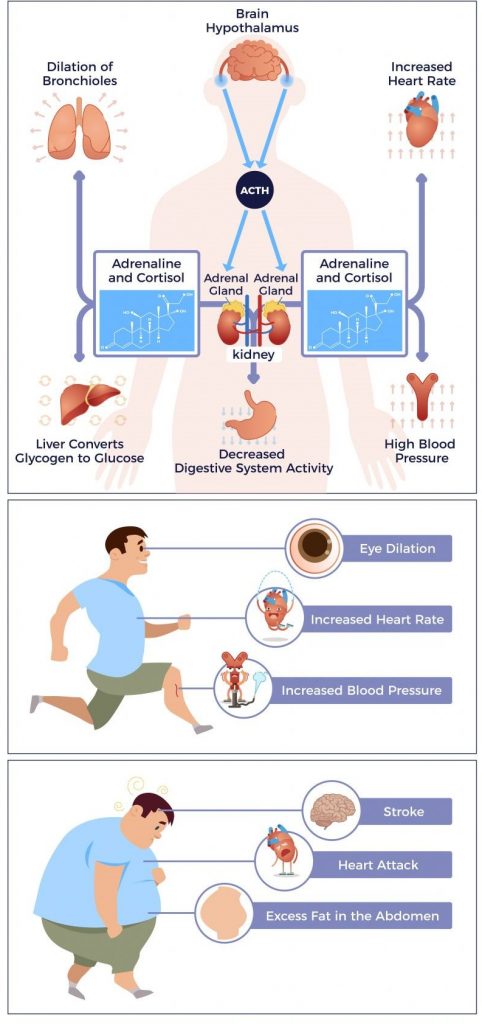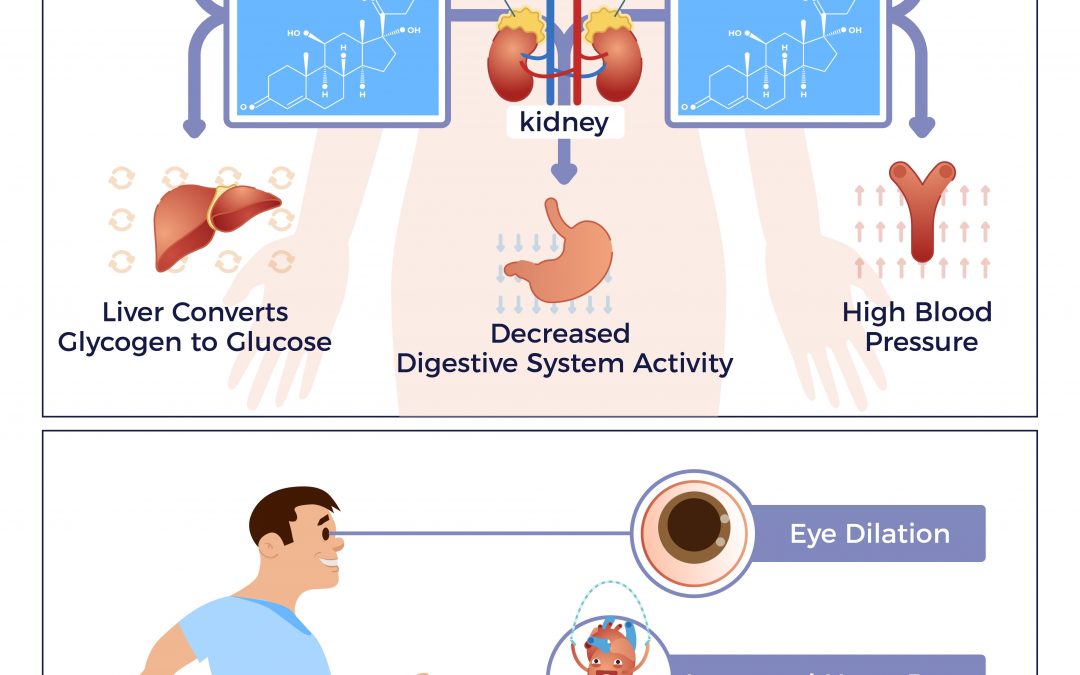This article is part 1 of a mini-series focusing on how the body reacts to stressors. This installment looks at the physiological reaction to stress and how this can impact a person’s overall health.
Have you ever thought about what stress could do to your body? You may think of stress abstractly as the increased pressure you feel before an upcoming deadline, but stress is an actual biological response that can turn dangerous when it becomes chronic.
Take the example of “Broken Heart Syndrome,” or stress-induced cardiomyopathy, where part of the left side of the heart becomes dysfunctional following an incredibly stressful event such as the death of a loved one. This condition can bring about symptoms like mimicking those of a heart attack, eventually requiring treatment with a variety of medications.
While an extreme case, Broken Heart Syndrome highlights the importance of understanding what happens to the human body when it is heavily exposed to stressors. Today, I will show in detail what stress actually looks like inside your body.

Tracking stress by its hormonal footprint: Cortisol
Whenever the body is exposed to a stressor, its reaction is to activatea system in the brain known as the Hypothalmic-pituitary-adrenal (HPA) axis. The HPA axis is responsible for regulating many hormones throughout the body, one of which is cortisol, the main stress-related hormone. Cortisol sometimes carries a bad reputation; however, it can have some positive effects. For example, cortisol tends to be elevated in the morning and lower at night due to its role ensuring the normal progression of our body’s natural rhythm. In addition to this, cortisol can play a vital role in immune function and sugar-level maintenance through insulin release. In emergency situations, it becomes a core part of our flight-or-fight mode and can even give us a quick burst of energy while lowering our sensitivity to pain.
Not everything is positive when it comes to cortisol, though. In cases of stress where cortisol remains continuously elevated, a myriad of illnesses may become present. For example, chronic exposure to cortisol can contribute to higher blood pressure, impaired cognitive performance, blood sugar imbalances, slowed healing from wounds, and even increased abdominal fat. In combination, these effects can put you at an increased risk for heart disease and stroke. With this in mind, protecting ourselves from chronic stress is essentially a matter of life and death.
Another key idea to understand about the relationship between cortisol and stress is its variation from one person to the next. Just as different people have different outward reactions to stressful situations, our bodies also secrete varying levels of cortisol. This variation is referred to as stress sensitivity. One person may secrete more cortisol than another under identical circumstances according to their respective stress sensitivities. This is why it is important to understand our own individual stress tolerances as we seek to protect ourselves from becoming chronically overwhelmed.
Overall, stress is not
something that should be taken lightly, particularly when it is chronic. The
good news is that there are many tips and tricks that can help alleviate
stress. I recommend daily exercise as a preventive measure due to its
biological benefits. Another possible approach could be practicing yoga and
deep breathing methods, which especially help to control persistent, long-term
stress. It is also important to realize that stress’s impact is not just limited
to our bodies but can also affect our minds. For this reason, I will go over
the relationship between stress and mental health in my next article.
Take care,
Professor K.
About CSOFT Health Sciences
CSOFT Health Sciences provides end-to-end medical translations for all phases of the product lifecycle, from pre-clinical to post-launch. We also specialize in market access consulting, medical writing, and CTD/eCTD submissions with the FDA, EMA, and NMPA. Our operations are compliant with ISO 17100 and certified in ISO 9001:2015 and ISO 13485:2016, ensuring our customized solutions meet the rigorous regulatory requirements of global submissions.
About CSOFT
CSOFT International is a leading provider of cross-border communications for enterprises seeking growth in global markets. Our expertise in localization, documentation, and branding encompasses a full range of end-to-end content and consulting services that we deliver in over 250 languages. With a focus in health sciences and smart technology, we work closely with our clients to deliver precision solutions to the challenges of engaging markets, consumers, and regulatory environments worldwide.
